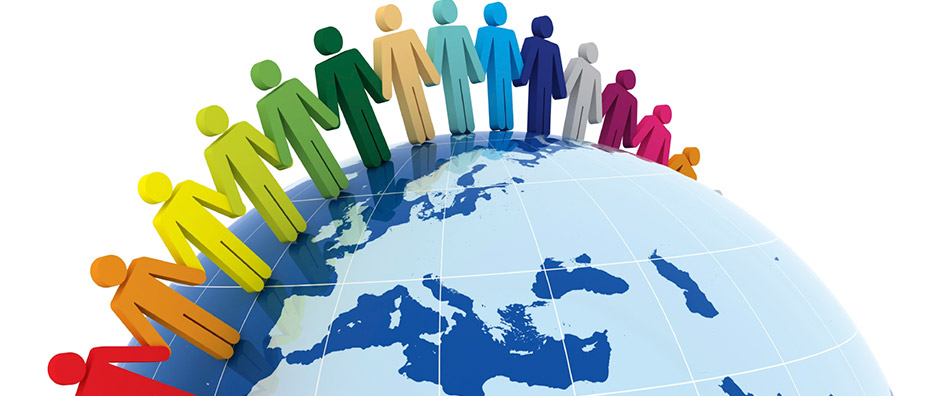The exploration of human identity remains one of the most perplexing issues faced by contemporary society. In an age marked by rapid technological advancements and pervasive globalization, individuals frequently grapple with the question of their own place within the greater tapestry of humanity. The Bahá’í teachings offer profound insights into this dilemma, presenting a framework that seeks to elucidate the complexities of human identity while fostering a sense of unity and purpose.
At the core of Bahá’í philosophy lies the conviction of the oneness of humanity. This principle asserts that all individuals, irrespective of their backgrounds, possess an inherent dignity and worth. Such an understanding is crucial in resolving the existential crisis that arises from parochial divisions based on race, religion, nationality, or social status. The Bahá’í approach advocates for a comprehensive worldview, urging individuals to transcend superficial distinctions in favor of a deeper recognition of shared human attributes.
One notable aspect of Bahá’í teachings is the emphasis on the interrelation of individual identity and collective well-being. The doctrine posits that personal identity is not an isolated construct but is instead intricately woven into the fabric of communal existence. To foster a healthy sense of self, individuals must engage with their community, contribute positively to its development, and uphold the principles of justice and equity. This interconnectedness cultivates a sense of belonging that greatly enhances personal fulfillment and societal harmony.
Furthermore, Bahá’í teachings underscore the significance of spiritual development in shaping one’s identity. The aspirational goal of the Bahá’í individual is to transcend physical and material attachments and cultivate a relationship with the Divine. Spiritual growth leads to self-awareness, allowing individuals to discern their innate qualities and potential. This inward journey, coupled with the commitment to serve humanity, provides a stable anchor in the quest for identity amidst the turbulence of external circumstances.
In addressing identity crises specifically, Bahá’í writings urge a reevaluation of the values that govern human interactions. Individualism, while often celebrated in modern culture, can lead to alienation and disconnection. In contrast, the Bahá’í perspective celebrates virtues such as compassion, service, and humility, which not only strengthen personal identity but also promote cohesive social structures. This reorientation towards collective values undoubtedly assists individuals in reframing their identities in line with universal principles.
One cannot discuss Bahá’í teachings without acknowledging the role of education in addressing the crisis of human identity. Education, deemed a fundamental right, is championed as a transformative tool that empowers individuals and communities alike. The Bahá’í writings advocate for an education that nurtures both intellectual and moral capacities, fostering critical thinking while instilling a sense of social responsibility. Through education, individuals gain a deeper understanding of their purpose and responsibilities, consequently forging a more resilient identity.
The impact of cultural diversity on identity is another focal point of Bahá’í teachings. In a globalized world, individuals are exposed to a plethora of cultural narratives, some of which may conflict with traditional identities. Rather than viewing cultural diversity as a source of division, the Bahá’í perspective champions it as a strength that enriches humanity. The ability to appreciate and respect various cultural expressions can profoundly enhance one’s sense of identity, facilitating a more inclusive and harmonious existence.
The exploration of identity is inherently tied to the crises faced by humanity today—whether it be discrimination, inequality, or environmental degradation. The Bahá’í teachings provide a holistic approach, emphasizing the interconnectedness of personal and collective issues. The resolution of identity crises, therefore, requires an integrative approach that takes into account social justice, environmental stewardship, and transcendent values. The Bahá’í holistic perspective encourages individuals to engage in global challenges while grounding themselves in a personal identity shaped by service and love for humanity.
Lastly, the notion of progressive revelation within Bahá’í teachings introduces a dynamic understanding of identity that evolves in tandem with humanity’s spiritual and intellectual maturation. This principle suggests that no single religious or cultural paradigm holds the monopoly on truth; instead, each contributes uniquely to the collective understanding of existence. Such an acknowledgment fosters an adaptable and evolving identity, encouraging individuals to continually reassess their beliefs and adapt to the ever-changing conditions of life.
In conclusion, the Bahá’í teachings present a multifaceted approach to resolving the crisis in human identity. By emphasizing the oneness of humanity, the interrelation of individual and collective well-being, the importance of spiritual development, and the benefits of education, these teachings provide a robust framework for individuals seeking to navigate the complexities of identity in a contemporary context. By fostering inclusivity, embracing cultural diversity, and encouraging progressive thought, Bahá’í philosophy ultimately guides individuals towards a more profound and enriching understanding of themselves and their place within the global community. In stark contrast to the prevailing narratives of division and isolation, the Bahá’í teachings illuminate a path towards unity and collective advancement—essential steps toward resolving the enduring crisis in human identity.
